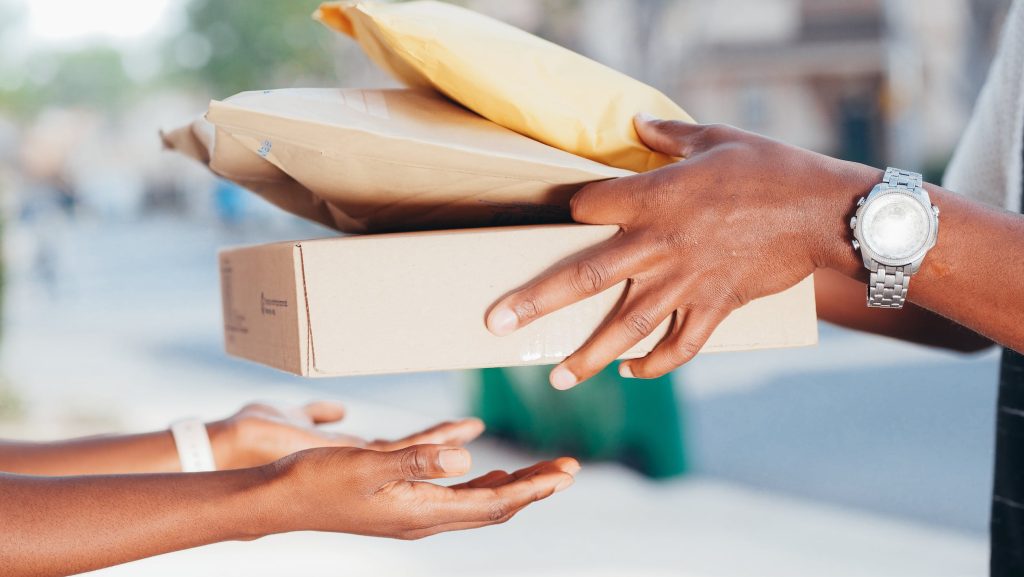This year’s biggest sales event, Black Friday, is just around the corner. On November 25 we are supposed to buy as much as we can, with the aim of not missing out on any of the best deals. Black Friday was created in the United States in the 80s and is celebrated on the fourth Friday of November, the day after Thanksgiving. It is also traditionally seen as the opening day of Christmas shopping. But how to create a sustainable Black Friday?
This year’s Black Friday
With consumers being particularly focused on the greatest offers and discounts due to inflation and the Ukraine war, Black Friday is set to boom again this year. Especially in tough times filled with uncertainty about the future, we feel more inclined to give ourselves and our loved ones a treat every now and then.
It is therefore important to keep pointing out the devastating consequences on the environment and the climate change caused by the excessive consumption and rampant shopping behavior practiced on Black Friday. One of the most potentially dangerous effects of it is the way Black Friday encourages the throw-away society and the fast fashion. In addition, the increase in CO2 emissions and the fact that the products sold on Black Friday are mainly plastic toys and tech products is quite problematic. Not only are we referring to just short-term consumer goods, but also a large amount of plastic to be disposed of, both in terms of the items themselves and their packaging, which has fatal effects on the environment.
Is it therefore at all possible as an online retailer to offer a sustainable Black Friday? Without feeling guilty about participating, and providing an open communication to customers?
The answer is YES, discounts and simultaneous consideration of climate change are perfectly compatible. As Black Friday will not disappear from our calendars, it’s time to put forward sensible, eco-friendly alternatives to make this day sustainable.
In this blog article, we show 6 tips on how sustainable brands can participate in Black Week:
1. Responsible shopping and handling returns
One of the biggest problems related to online shopping on Black Friday are the returns, as they not only cause greenhouse emissions, but products with a low value are also largely destroyed and therefore not recycled.
Both online retailers and consumers can contribute to a lower return rate: Online shops should focus on avoiding returns in general, e.g. by providing very precise information in the product presentation so that customers can find out as detailed as possible what exactly they are ordering and going to receive. What to do if a return still occurred? The best advice is to recycle as many products as possible no matter in which way.
While making customers aware of responsible shopping may not be a good sales strategy, if you as an online retailer really want to contribute to an environmentally friendly Black Friday, it certainly doesn’t hurt to point out to consumers during the buying process or before completing their purchase whether all products that are currently in their shopping cart are really needed and used by them. For example: “Especially on Black Friday, online shopping causes a lot of packaging waste and CO2 emissions caused by the transport of the goods. Please consider this before completing your purchase and help ensure responsible Black Friday shopping. For you and our planet.”
2. Let customers agree on a desired delivery date
Speaking of sustainable shopping, online shops can help avoid further returns and unnecessary routes on Black Friday by letting their customers agree on a desired delivery date already during their ordering process. By doing so, deliveries without any problems, further detours for customers can be provided. As a consequence, more CO2 emissions can be prevented.

3. Offer environmentally friendly shipping
When shopping online, more and more customers pay attention to whether the respective shop offers environmentally friendly shipping. If you are not doing already, make sure that the shipping method is transparent and that it is as sustainable as possible, especially on Black Friday. It should be clearly emphasized that the trend towards immediate deliveries is the most CO2-intensive and should be avoided if possible. Longer delivery times are an environmentally friendly alternative.
4. Registration of distributed electrical goods, batteries and packaging
Even shortly before this year’s Black Friday, a large number of German online retailers are unaware of their obligations abroad.
Every retailer in e-commerce is fundamentally obliged to comply with the laws applicable in Germany, in particular the Electrical and Electronic Equipment Act (ElektroG), the Packaging Act and the Battery Act. If this is not the case, be it just because of ignorance, fines of up to 100,000 euros can be expected.
If you ship internationally, ensuring compliance becomes all the more complex and opaque, of course, because there are more than 300 regulations worldwide that are highly relevant to e-commerce. In addition, the fines abroad can be significantly higher.
It is therefore advisable that online traders are aware of all these laws and innovations and remain informed in the future.
Our digital consulting service is always happy to help you with this, because our goal is to break down trade barriers in international online trade and make recycling accessible to everyone.
5. Provide warranty and repair facilities
To avoid waste and counteract the throwaway trend, especially on Black Friday, the following still applies: repair instead of buying new. In their shop, try to offer repair-friendly products, availability of spare parts and longer warranty periods. In order for repairs and the purchase of used goods to become even more attractive, a right to repairs is urgently needed. From an environmental point of view, electrical and electronic equipment in particular (which makes up a large part of Black Friday sales) should be able to be used for as long as possible. According to the Federal Environment Agency, a long-lasting washing machine, for example, produces almost 1,100 kg fewer CO2 equivalents over a period of 20 years than a short-lived variant: That is almost 30 percent fewer greenhouse gas emissions. A long-lasting TV set emits almost 600 kg fewer CO2 equivalents within 10 years and thus around 20 percent fewer greenhouse gas emissions than short-lived models. As we all know, every new product costs an unnecessarily large amount of resources and energy to manufacture. It is therefore always the most environmentally friendly way to prevent waste. In addition, customers can directly influence their carbon footprint.
6. Boycott Black Friday and entice people with other offers instead
In order to position themselves as a sustainable and socially responsible brand, online shops can of course resort to more drastic measures and boycott Black Friday in general. On the one hand, this is possible, for example, by not advertising at all with promotions and discounts on Black Friday, but alternatively, other offers can also be used as a lure (e.g. planting trees for the order, donating part of the sales, etc.).
So why not just steer the aggressive advertising that is being driven on Black Friday in the right direction and enable consumers to consume more sustainably?
With this in mind: Happy sustainable Black Friday to all of us!
